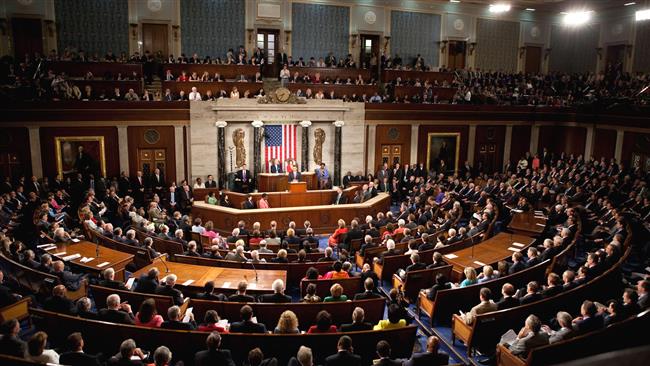
RNA - European Commission President Jean-Claude Juncker says he believes the EU stands ready to act within days if the highly disruptive sanctions are adopted without taking Europe’s concerns into account. This is particularly important if major German, French and Italian energy companies get targeted, as they are dependent on Iran and Russia for oil and natural gas.
Not everyone in Europe is on the same page, however. Poland, and the Baltic states, are all more hostile toward Russia, and are all keen to see the EU add the new sanctions on Russia as well as reducing their energy dependence on Russia. The same is true about Saudi Arabia and other tiny Arab states in the Persian Gulf. They are all hostile toward Iran, and are all keen to see the US add the new sanctions on Iran, despite the fact that the US has confirmed Iran’s full compliance to the nuclear deal it signed with the P5+1 in 2015.
Since oil and natural gas don’t grow on trees, and there isn’t an immediate alternative to Iran and Russia for the nations that have been depending on them for years, the EU can protect this trade from any US threats through the following means:
- President Donald Trump has ordered that the CIA begin to phase out its covert train-and-equip program in support for Qaeda-allied “moderate” rebels fighting against the government of Syria. Through this action, President Trump is walking away from an established policy of America taking an active role in forcing the Syrian president’s ouster, willing instead to leave Assad’s fate in the hands of the Syrian people. The decision by Trump to terminate support for the rebels is the clearest signal yet that the US has changed course on trying to force regime change in Damascus as a precondition for a political settlement of the crisis. The EU could follow suit. This way it can win the much needed support and cooperation of Iran and Russia in the push to minimize the impacts of the new US unilateral sanctions.
- Italy’s Eni is keeping its foot on the ground in Iran after major rival Total’s signing of a $5 billion gas deal with the National Iranian Oil Company earlier this month. Eni CEO Claudio Descalzi says his company is not in a competition for presence in the Islamic Republic, having already clinched deals to develop the country’s Darkhovin oil and Kish gas fields. Other EU energy giants could follow suit. In fact, they are doing it right now. Electricity and gas distributor Enel, oil contractor Saipem, steel firm Danieli, infrastructure firm Condotte d'Acqua, rail and road company Gavio, and airplane manufacturer Finmeccanica are the other Italian companies which have undertaken big ticket investment plans in Iran. This way they are sending a clear message that they are not going along with Washington; they are sticking to the nuclear deal; and that the agreement is not just with one country but with the entire world community – including the EU.
- The EU, just like the US, should stop blaming Iran – their biggest energy partner - for everything that went wrong in the regime change campaigns in Syria and Yemen. This only adds to the current atmosphere of distrust. They should stop vilifying Iran for doing things their ally, the US and its regional client states, do all the time. Just as the way the Trump White House is milking Saudi Arabia through arms sales worth hundreds of billions of dollars, soon it will start milking the EU too. The Europeans might not like Congress’s newfound disdain for Iran and Russia, especially big oil firms. If they tow Washington's line, barring a few concessions here and there, then they have to deal with the very real risk of Treasury Department fines against the new energy deals with Iran and new Russia-to-Germany gas line known as Nord Stream II. EU leaders say they will retaliate, but no one knows how.
All in all, the EU has no choice but to fight back. The Senate has ratified a new sanctions upgrade against Russia. Tucked in a legislation against Iran, this will take sanctions on Russian finance and energy firms worldwide as well. It particularly calls out the Nord Stream II pipeline, built by a joint venture which includes Gazprom, Wintershall of Germany and OMV of Austria. Before this gets too late, the French, German and Austrian governments should warn Congress not to go there. If they go there, and if they follow, the Europeans have no one to blame but themselves for any financial losses and Treasury fines.
In summation, no one outside of Washington likes these sanctions. This is no longer just about Iran or Russia. This is about Washington sitting on a new sanctions regime that will penalize many energy and tech companies in Europe and Asia, even American firms working with entities run by sanctioned companies and individuals inside Russia. US oil firms, particularly those that sell drilling equipment to Russians, are worried because the new extra-territorial push against Russia means they cannot sell certain equipment to Russians anywhere.
The French, in particular, have voted to lift sanctions now for the past 12 months and to no avail. French President Emmanuel Macron has called for better relations with Russia and Iran. The time has come for other European governments to also stand up to the US on issues related to sanctions as well as Iranian-Russian involvement in Syria. Such are the hurricane force headwinds going against the United States.
847/940